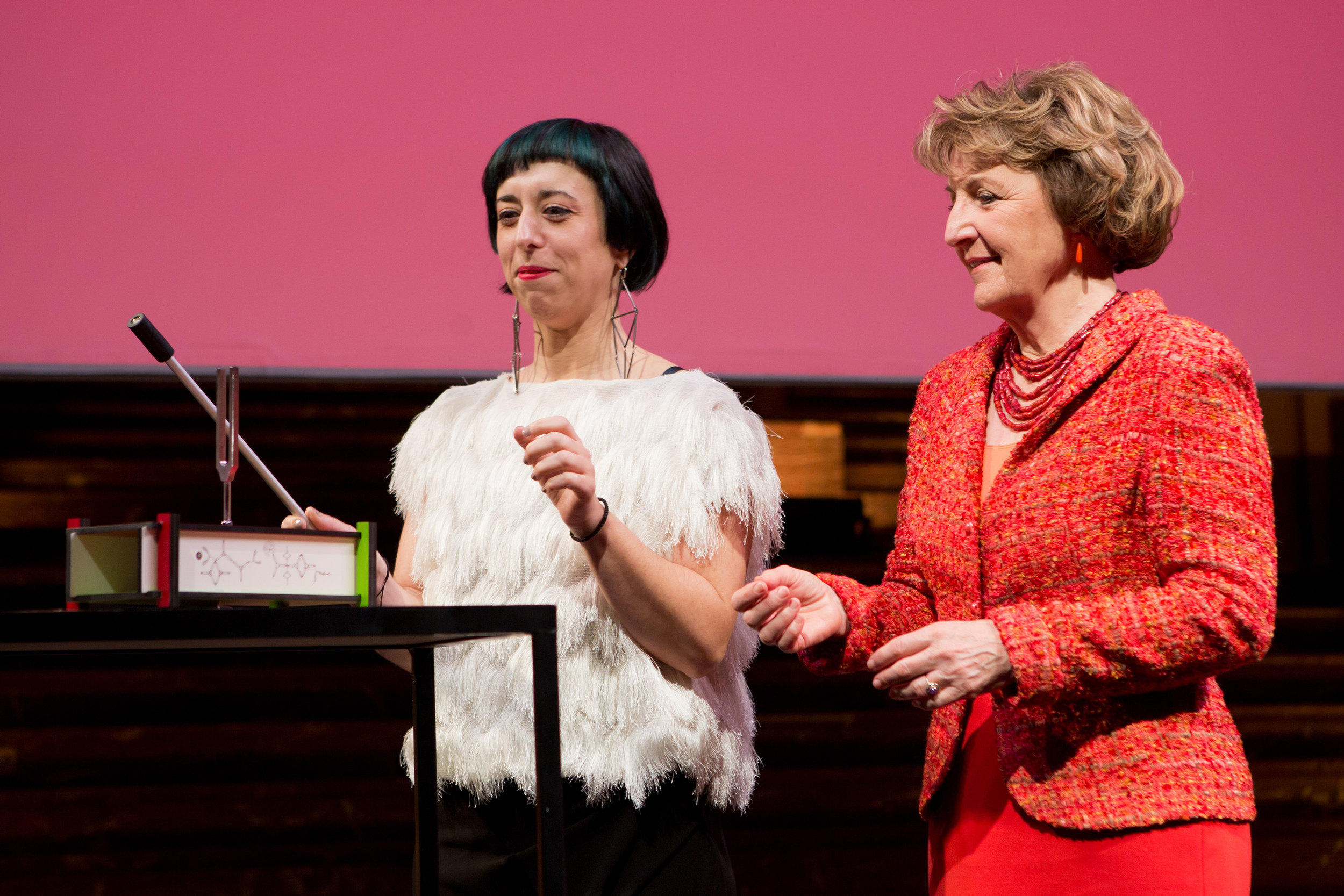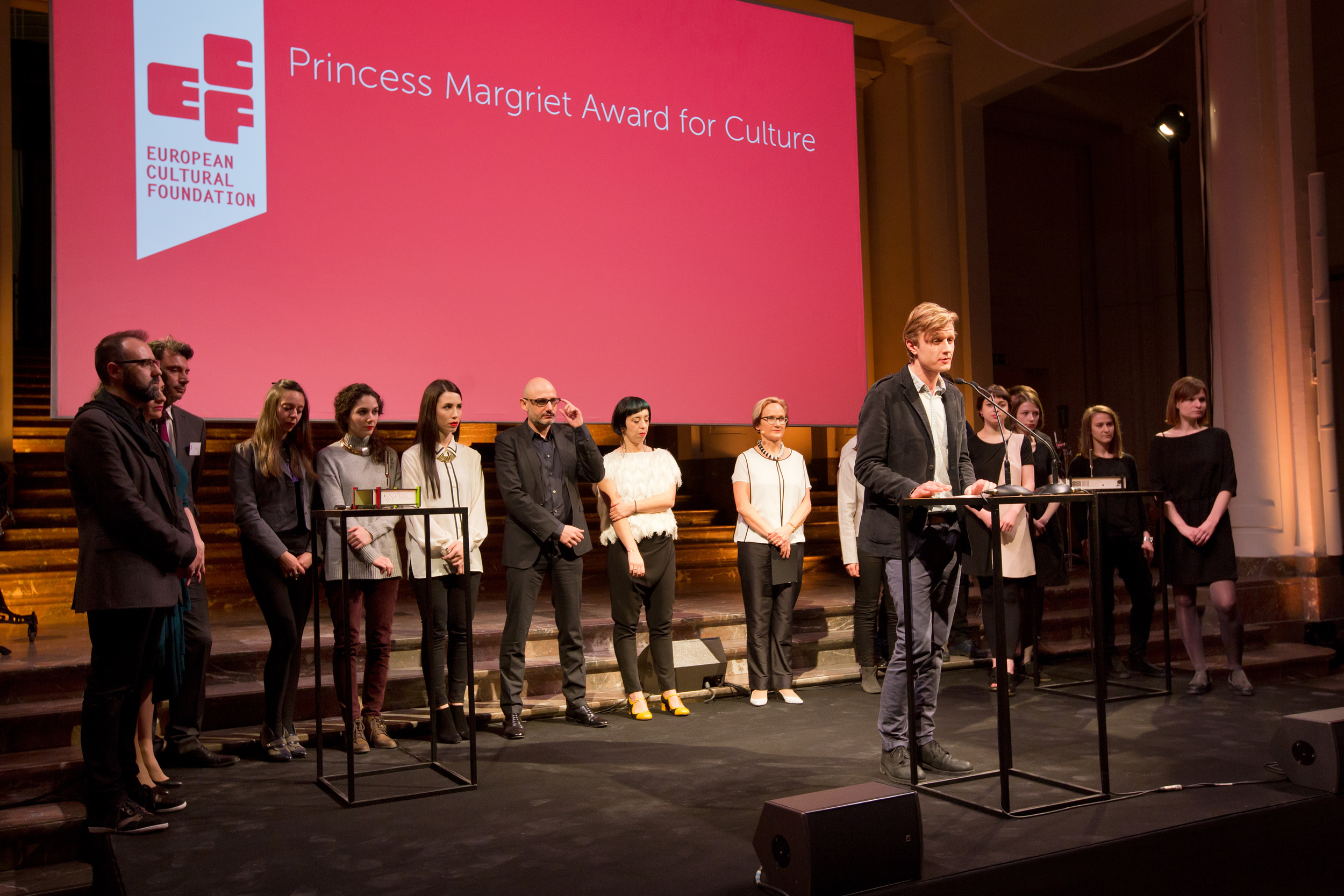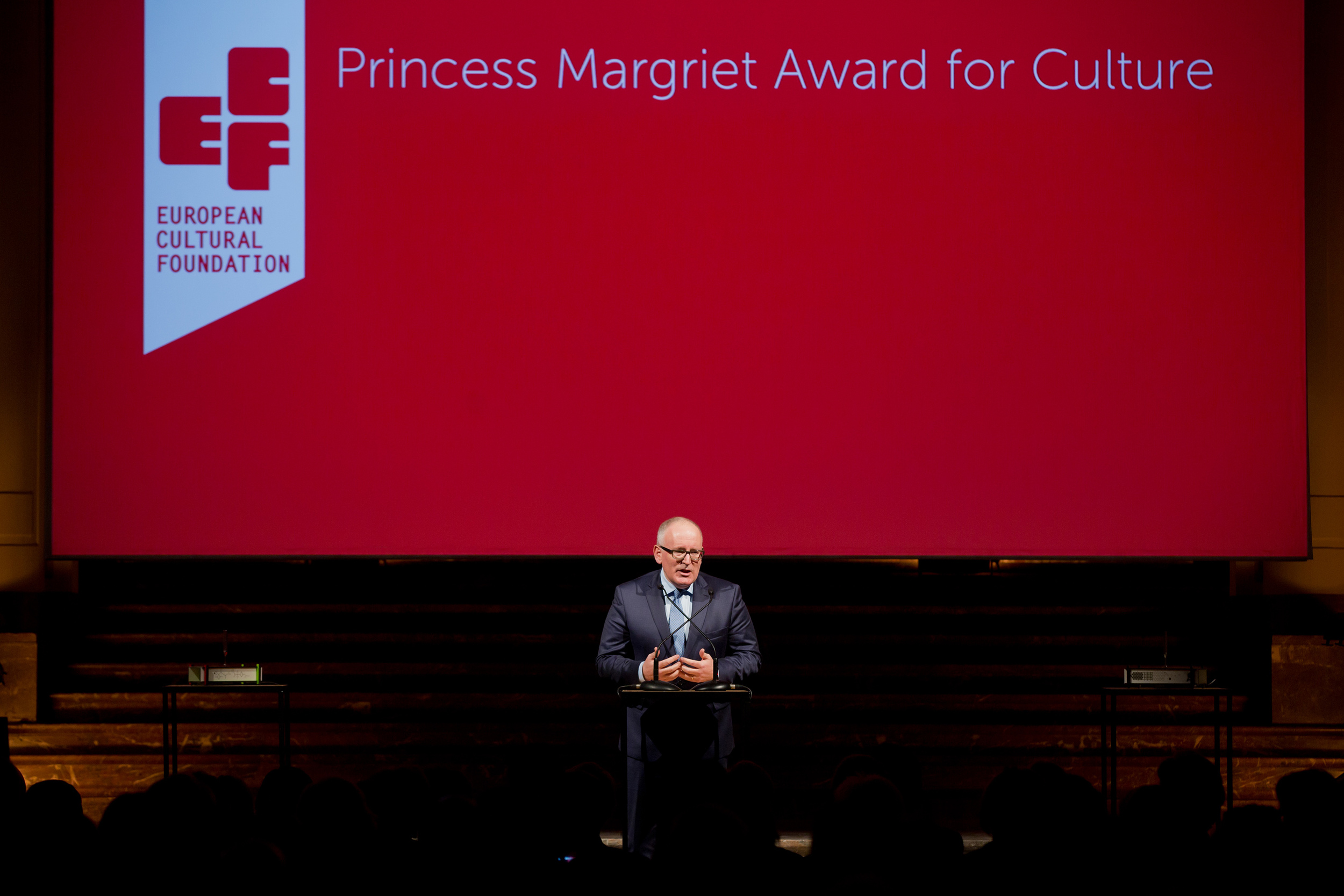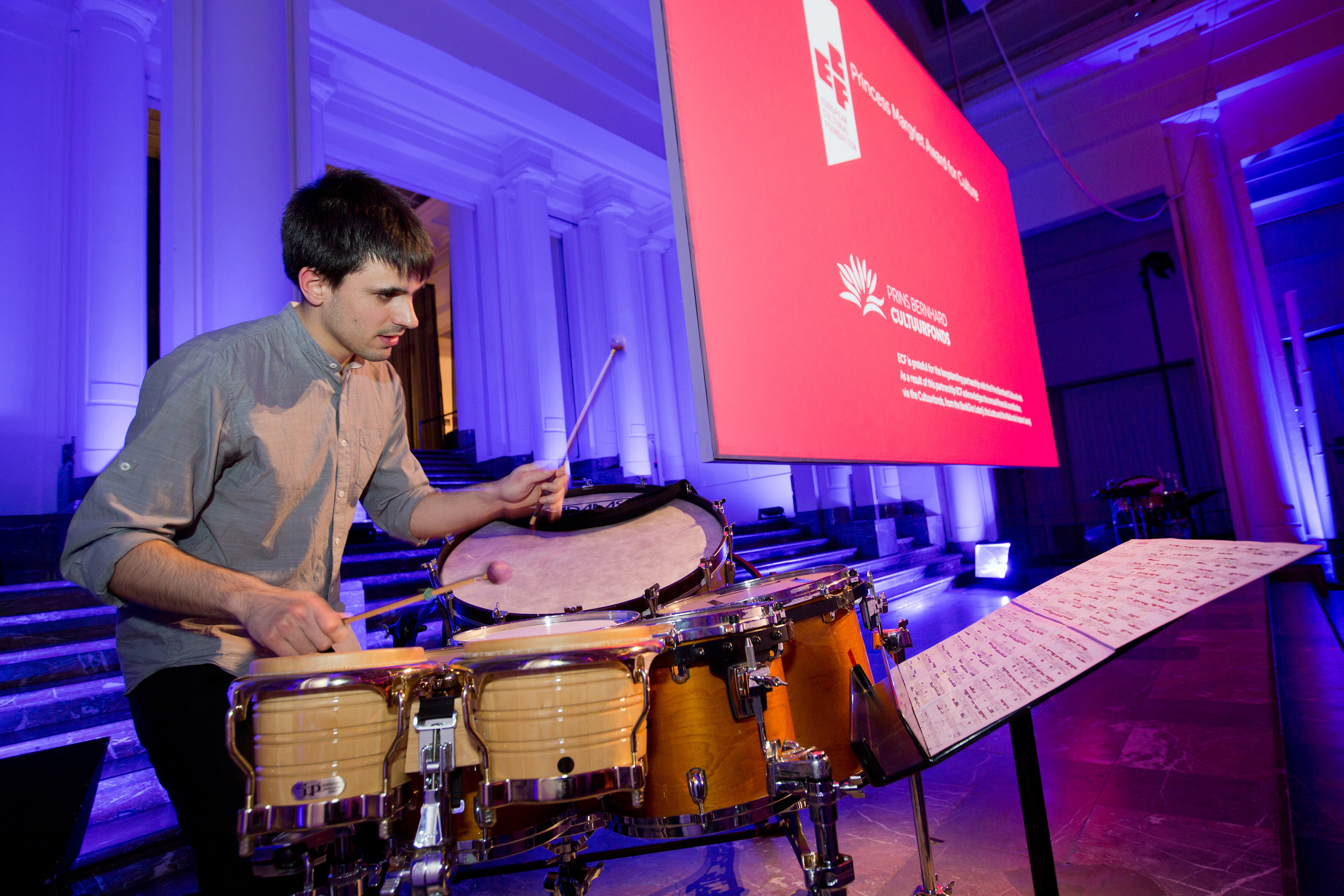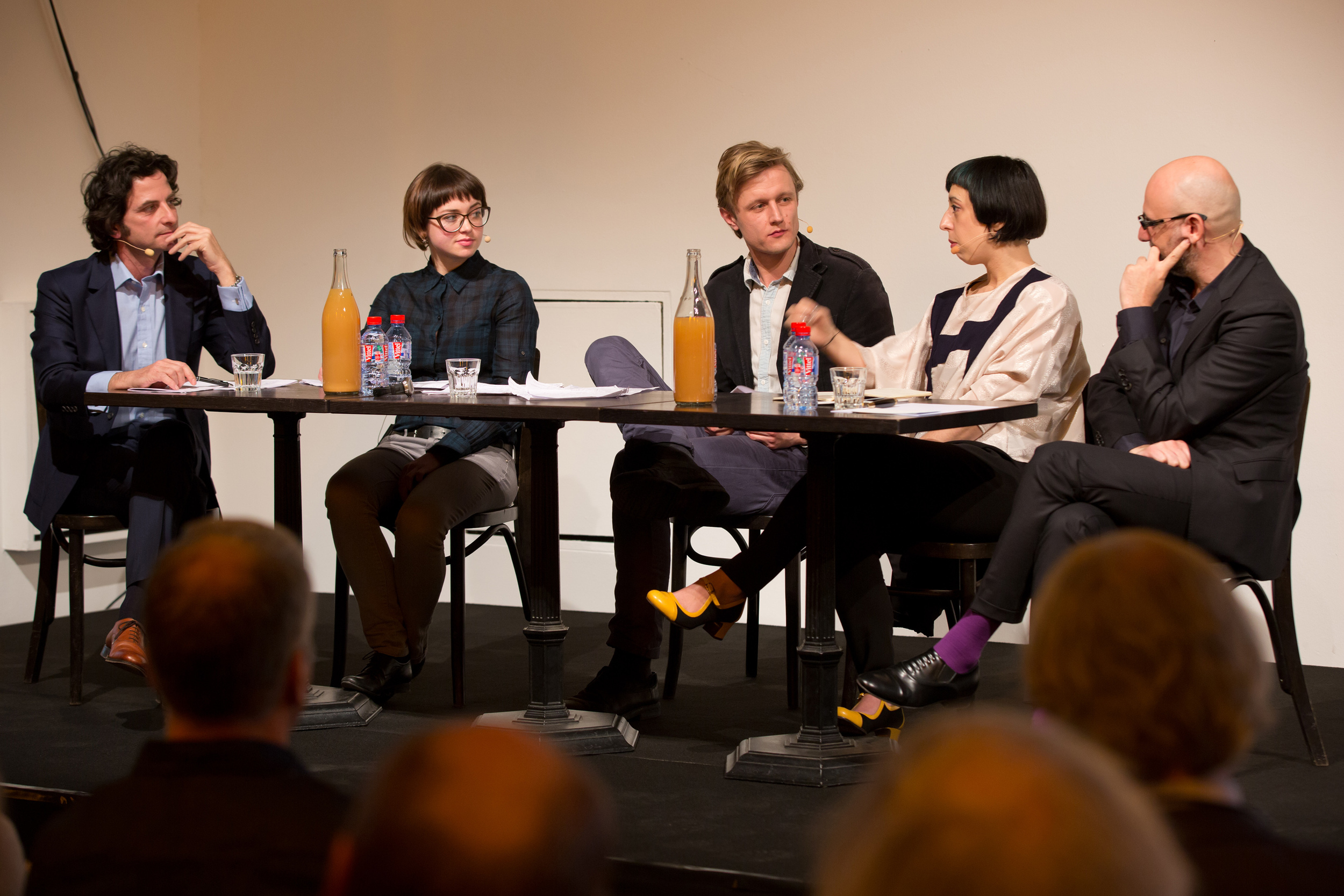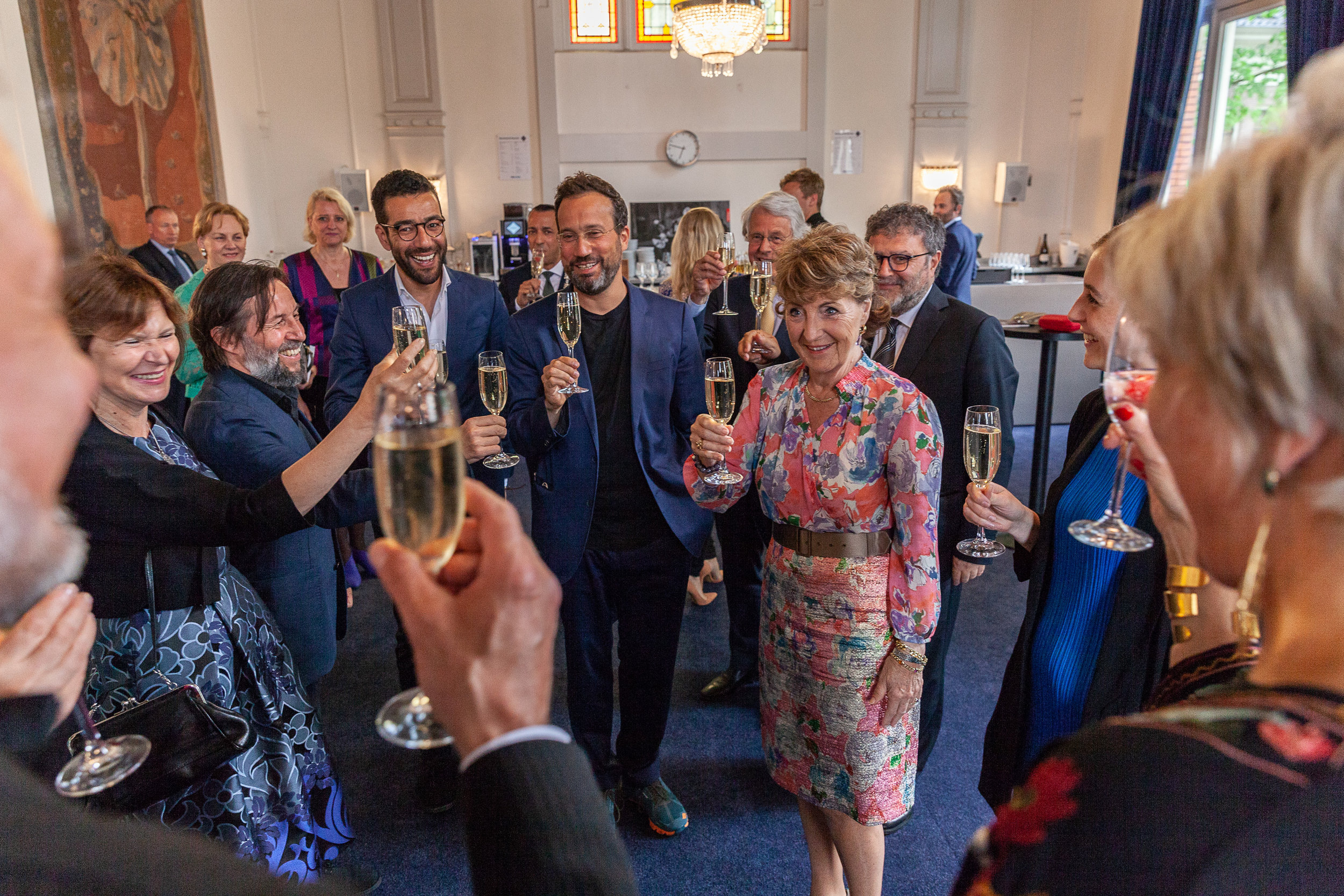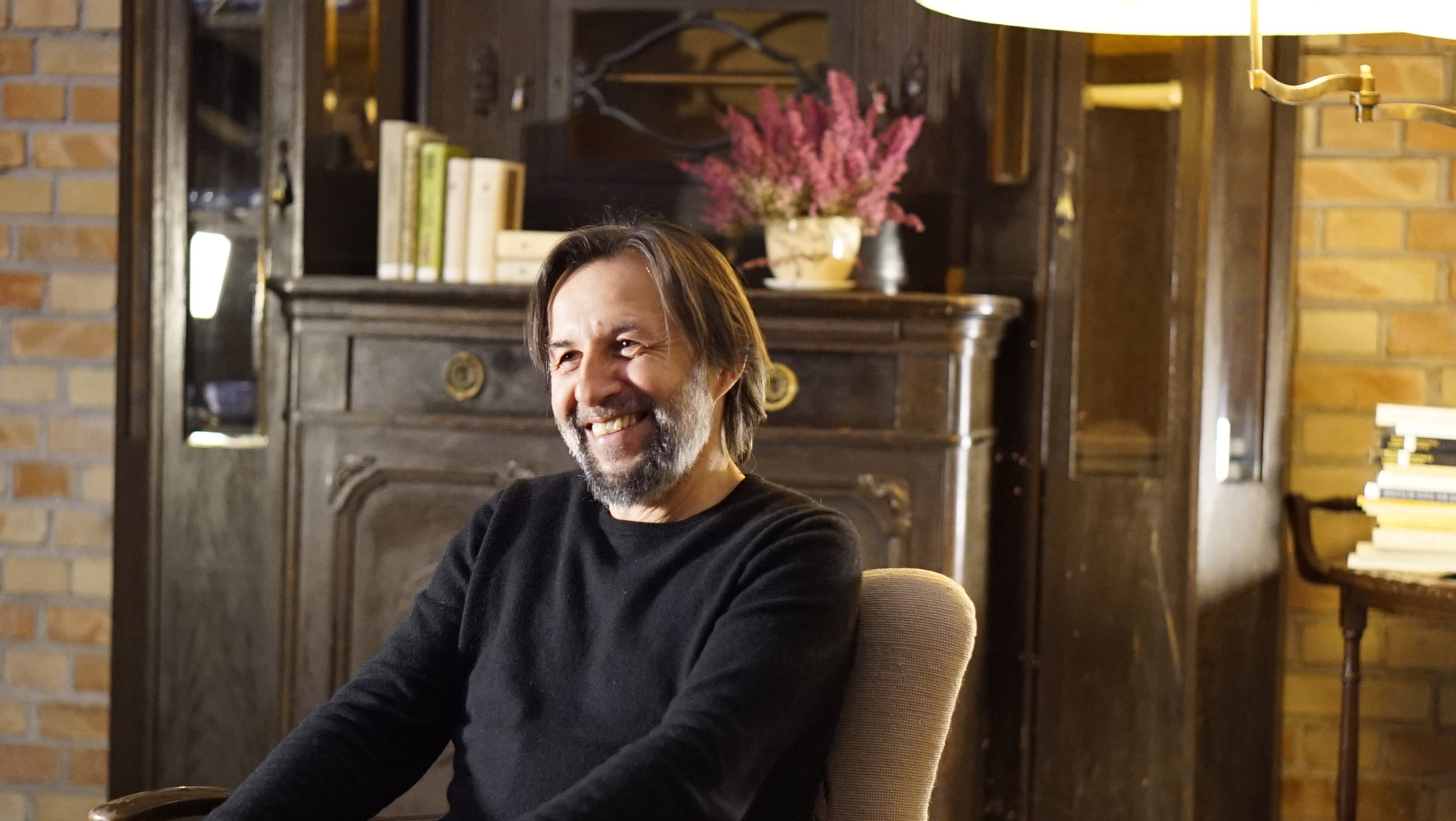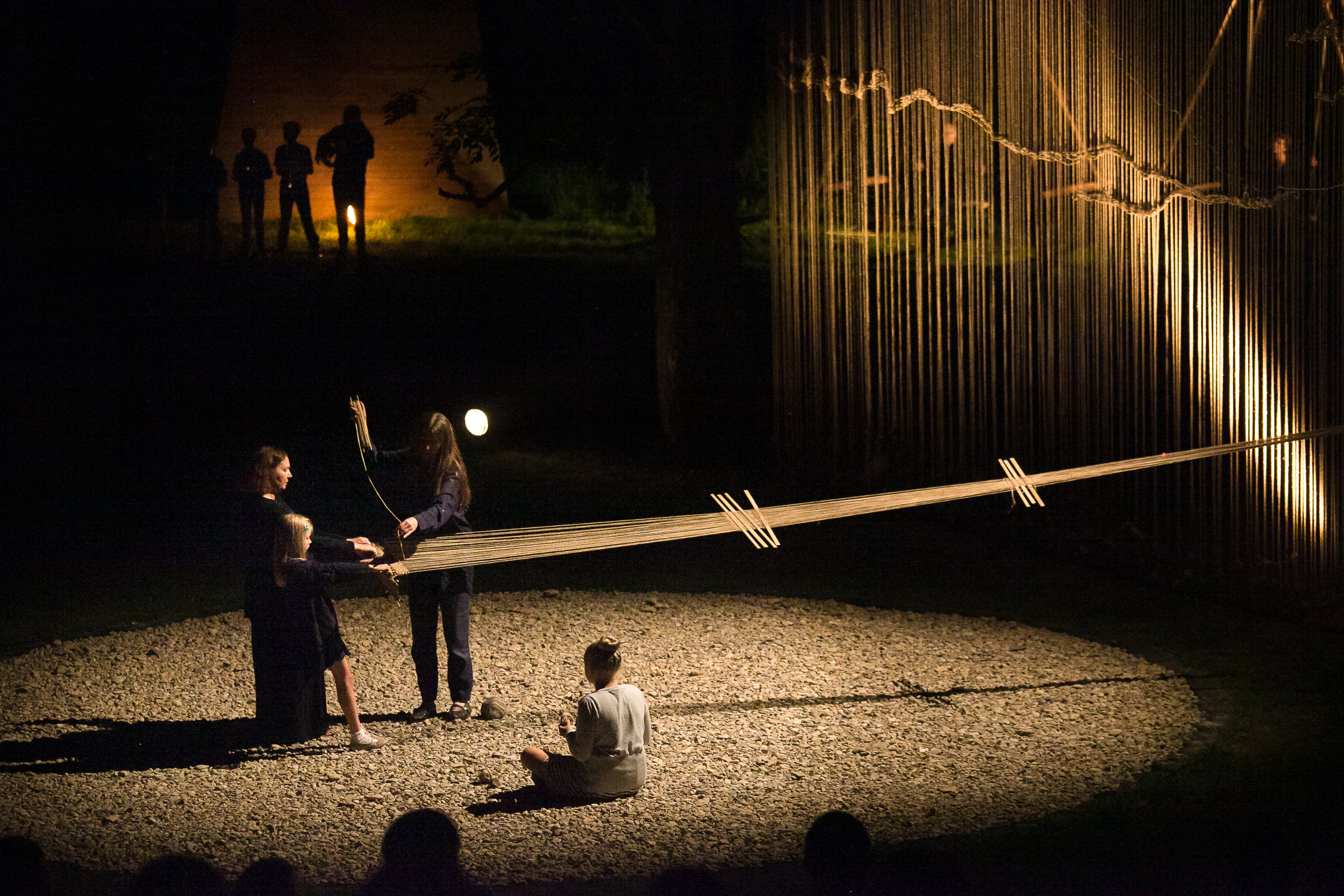More than 350 people crowded into the Centre of Fine Arts, BOZAR, in the heart of Brussels on 31 March to see two courageous cultural initiatives from different corners of Europe – the Athens Biennale (Greece) and the Visual Culture Research Center (Ukraine) – receive the prestigious 2015 ECF Princess Margriet Award for Culture.
Ictus Ensemble. Photo Maarten van Haaff.
Handed out by HRH Princess Margriet of the Netherlands, ECF’s former President, the 7th edition of the award honoured what ECF’s Director Katherine Watson called “two cultural change-makers who catalyse new ways of connecting ideas, people and institutions”.
HRH Princess Margriet of the Netherlands and Vasyl Cherepanyn. Photo Maarten van Haaff.
Xenia Kalpaktsoglou and HRH Princess Margriet of the Netherlands. Photo Maarten van Haaff.
In her speech, HRH Princess Laurentien of the Netherlands recognised the difficult conditions that both organisations have been working under to transform the quality of public life, from the grassroots to the institutional level:
“The brave and visionary individuals behind both collectives began their work well before the recent crises and before both countries became at the forefront of our minds,” she said. “They have maintained their work with great courage and skill in the face of personal and collective tragedy, reminding us how culture can create a common ground, a place for progressive visions.”
HRH Princess Laurentien of the Netherlands. Photo by Maarten van Haaff
“Culture is, more than ever before, not a nice to have but a need to have.”
Jury Member Rana Zincir Celal. Photo by Maarten van Haaff.
Jury member Rana Zincir Celal described how the international jury – including Tate Britain’s Director Chris Dercon and performance theorist Bojana Cvejić – had agreed unanimously and enthusiastically when choosing the two laureates:
“Both Kiev and Athens are cities that are being redefined; in fact their struggles are highly representative of struggles elsewhere in Europe and beyond,” she said. “In this complex period of redefinition, the laureates are ensuring that culture, expression and freedom are part of the formulation of new trajectories.”
Special guest Frans Timmermans, First Vice-President of the European Commission, delivered a rousing speech that paid tribute to the power of culture to help rekindle dialogues across political, religious and cultural divides at a time when European values are being fundamentally threatened:
“One of the biggest challenges in Europe today is that we’re all very good at speaking but we’re not so good at listening,” he said. “In my view, what [the laureates] do is a cry for the rekindling of a narrative, a need to speak together across our political differences.”
Georg Schöllhammer (Head of tranzit.at) echoed this sentiment in his laudation for the Visual Culture Research Center (VCRC):
“In a time where a growing number of European citizens voice with much nationalist and xenophobic shrillness against them, the space of public gathering reflection and artistic otherness you create is more needed than ever, and not just in Ukraine,” he said. “We must connect – to have a chance. We must, instigate transnational, plural cultural narratives. It is an indispensable component of a common programme and your work at the VCRC is a role model for it…”
In his laudation for the Athens Biennale, Adam Szymczyk (Artistic Director of documenta 14) also praised “the incredible energy, inventiveness and capacity to improvise” of the Biennale’s organisers, who have been challenging the status quo and adapting to changing circumstances in Greece over the past eight years:
“Athens Biennale is not an urban regeneration project or a means to raise the city’s attractiveness for prospective investors,” he said. “It is rather a project devised as an analytical tool, reflecting its immediate socio-political environment – constantly checking on its own status as a critical device – and changing strategies according to the needs of the moment, instead of defining its thematic scope according to the wilful decision of one or another curator.”
The Visual Culture Research Center team. Photo Maarten van Haaff
The awards themselves came in the shape of specially crafted tuning forks mounted on a sound box and carefully calibrated by Dutch sound artist Nathalie Bruys for each of the laureates. The ceremony was accompanied throughout by the percussive rhythms of the Brussels-based Ictus Ensemble, which connected and echoed across the space in BOZAR’s impressive Horta Hall.
“Like this music, we hope that the reverberations of the ECF Princess Margriet Award for Culture are felt throughout Europe’s cultural and political spheres,” said ECF’s Katherine Watson.
ECF Director Katherine Watson. Photo by Maarten van Haaff
Finding common ground: a conversation
The award ceremony was preceded by a conversation with the laureates about their work, moderated by University of London-based academic Massimiliano Mollona, in a thought-provoking exchange reflecting on situations of crisis and the way their cultural practices are a means for rethinking Europe’s public sphere.
Poka-Yio – one of the co-founders of Athens Biennale – explained how the organisation was set up to challenge the way things were done in the past: “It’s a time when politicians fail and economic values fail and we’re removing the ivory tower of contemporary art,” he said. “We have to create a new space for public dialogue that incorporates all the spaces that were left out.”
Athens Biennale co-founder Xenia Kalpaktsoglou agreed: “We need to find another way to discuss,” she said. “We need to find common denominators. We need maybe to discuss what’s dividing us.”
Drawing on their experiences in Ukraine, one of VCRC’s founders Vasyl Cherepanyn – who was himself brutally beaten by opponents last year – described how circumstances had forced art to meet politics head on in his country.
“The problem for today is that there is a huge gap between society and state,” he said.
“These problems aren’t just Ukraine’s problems. They’re also problems of London and Vienna. These challenges demand transformation. Now Europe has to decide.”
The ECF Princess Margriet Award for Culture – a tribute to HRH Princess Margriet of the Netherlands, who served as ECF’s President from 1983 to 2007 – is given to European cultural change-makers whose work shows the power of cultural engagement in making social and political change possible. First presented in 2008, the annual Awards have been won by trailblazing activists, choreographers, theatre and film-makers and visual artists – ranging from the renowned late cultural theorist Stuart Hall to Romanian artists Dan and Lia Perjovschi. The laureates for the Princess Margriet Award for Culture each receive €25,000.
Browse all the images (photos by Maarten van Haaff):




